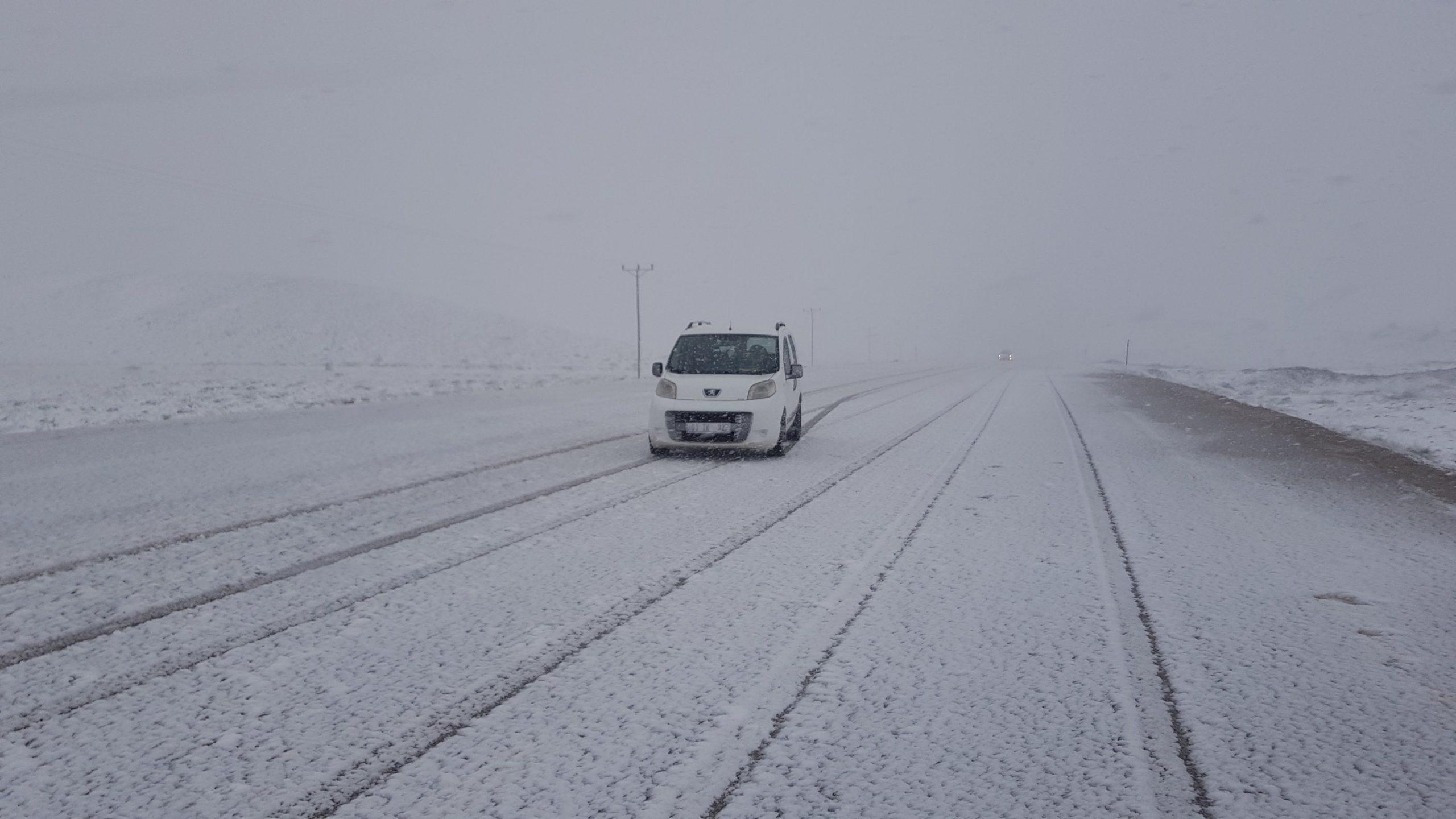As temperatures plummeted throughout Turkey following an African heat wave system, a cold front accompanied by strong winds, snowfall and hail brought winter back to eastern provinces and plateaus.
The Turkish State Meteorological Service (TSMS) warned Monday that heavy downpours would likely hit the northeastern provinces of Erzurum, Erzincan, Kars, Ağrı, Iğdır and Ardahan and the eastern province of Van with southern winds blowing up to 70 or 80 kilometers (around 40 to 50 miles) per hour.
Authorities warned citizens of flash floods, lightning, hail and falling objects, urging caution especially during travel, which has been restricted throughout Turkey as part of measures against the COVID-19 pandemic since midnight on Friday for a period of four days covering the Islamic holiday of Ramadan Bayram, also known as Eid al-Fitr. Throughout the region, strong winds tore up roofs, uprooted trees and damaged fields, although few injuries were reported thanks to the ongoing curfew.
In the southeastern province of Hakkari, strong winds starting Sunday night damaged roofs of homes and public buildings in the city center, whereas a booth serving as a taxi stand was rolled into a street.
Strong winds also damaged homes in Van’s city center as well as greenhouses and fields in the surrounding districts of Gürpınar, Saray, Gevaş and Özalp, where many sheep perished as the roof of a barn collapsed.
The storm also led to local power blackouts throughout the region, including in Ardahan’s city center.
In the southern city of Kahramanmaraş, several apartment buildings, a school, several grocery stores and billboards were damaged in the storm.
A hail storm that followed rainfall in the southeastern city of Diyarbakır covered streets in white, troubling the few drivers exempt from the curfew. Although the damage was minimal in the city center, crops were affected in the provincial countryside as well as in neighboring Elazığ province.
Five neighborhood watchmen were injured early Monday as a car carrying them on their return from duty veered off the road in Erzurum’s Horasan district.
Snowfall also disrupted traffic and affected herders in highlands throughout the country, especially in the northern and eastern parts. High altitude areas in Erzincan province were particularly affected by the snowfall as many mountain passes were closed, village roads were blocked, and drivers had to use tire chains on highways.
A 70-year-old shepherd who had left his village was found dead after getting caught up in a snowstorm. Cattle breeders in the highlands of the Üzümlü district were luckier as they managed to return to their villages along with their herd. Shepherd Barış Metin Kurt told Anadolu Agency (AA) that the weather suddenly turned bad, and it is the first time they had encountered such a phenomenon in May.
A group of shepherds roaming the countryside of northern Kastamonu province with 440 sheep were stranded on a plateau after sudden snowfall. Some 80 sheep were found dead due to cold and exhaustion, and many are still unaccounted for. Shepherds themselves called for help from gendarmerie and locals, taking refuge in a nearby village along with their remaining animals.
In the highlands of northern Giresun province, more than a dozen shepherds and some 4,000 sheep were rescued as local units cleared snow-covered roads and brought in fodder for the animals.
A group of 30 people, including shepherds and their families, stranded in a highland in the Nurhak district of Kahramanmaraş were rescued by the local Disaster and Emergency Management Authority (AFAD) and gendarmerie units.










Discussion about this post